- Home
- Margaret Atwood
Selected Poems II (1976-1986) Page 5
Selected Poems II (1976-1986) Read online
Page 5
Just this: I think of the woman
they did not kill.
Instead they sewed her face
shut, closed her mouth
to a hole the size of a straw,
and put her back on the streets,
a mute symbol.
It doesn't matter where
this was done or why or whether
by one side or the other;
such things are done as soon
as there are sides
and I don't know if good men
living crisp lives exist
because of this woman or in spite
of her.
But power
like this is not abstract, it's not concerned
with politics and free will, it's beyond slogans
and as for passion, this
is its intricate denial,
the knife that cuts lovers
out of your flesh like tumors,
leaving you breastless
and without a name,
flattened, bloodless, even your voice
cauterized by too much pain,
a flayed body untangled
string by string and hung
to the wall, an agonized banner
displayed for the same reason
flags are.
A Women's Issue
The woman in the spiked device
that locks around the waist and between
the legs, with holes in it like a tea strainer
is Exhibit A.
The woman in black with a net window
to see through and a four-inch
wooden peg jammed up
between her legs so she can't be raped
is Exhibit B.
Exhibit C is the young girl
dragged into the bush by the midwives
and made to sing while they scrape the flesh
from between her legs, then tie her thighs
till she scabs over and is called healed.
Now she can be married.
For each childbirth they'll cut her
open, then sew her up.
Men like tight women.
The ones that die are carefully buried.
The next exhibit lies flat on her back
while eighty men a night
move through her, ten an hour.
She looks at the ceiling, listens
to the door open and close.
A bell keeps ringing.
Nobody knows how she got here.
You'll notice that what they have in common
is between the legs. Is this
why wars are fought?
Enemy territory, no man's
land, to be entered furtively,
fenced, owned but never surely,
scene of these desperate forays
at midnight, captures
and sticky murders, doctors' rubber gloves
greasy with blood, flesh made inert, the surge
of your own uneasy power.
This is no museum.
Who invented the word love?
Christmas Carols
Children do not always mean
hope. To some they mean despair.
This woman with her hair cut off
so she could not hang herself
threw herself from a rooftop, thirty
times raped & pregnant by the enemy
who did this to her. This one had her pelvis
broken by hammers so the child
could be extracted. Then she was thrown away,
useless, a ripped sack. This one
punctured herself with kitchen skewers
and bled to death on a greasy
oilcloth table, rather than bear
again and past the limit. There
is a limit, though who knows
when it may come? Nineteenth-century
ditches are littered with small wax corpses
dropped there in terror. A plane
swoops too low over the fox farm
and the mother eats her young. This too
is Nature. Think twice then
before you worship turned furrows, or pay
lip service to some full belly
or other, or single out one girl to play
the magic mother, in blue
& white, up on that pedestal,
perfect & intact, distinct
from those who aren't. Which means
everyone else. It's a matter
of food & available blood. If mother-
hood is sacred, put
your money where your mouth is. Only
then can you expect the coming
down to the wrecked & shimmering earth
of that miracle you sing
about, the day
when every child is a holy birth.
Notes Towards a Poem that Can Never Be Written
(For Carolyn Forché)
i
This is the place
you would rather not know about,
this is the place that will inhabit you,
this is the place you cannot imagine,
this is the place that will finally defeat you
where the word why shrivels and empties
itself. This is famine.
ii
There is no poem you can write
about it, the sandpits
where so many were buried
& unearthed, the unendurable
pain still traced on their skins.
This did not happen last year
or forty years ago but last week.
This has been happening,
this happens.
We make wreaths of adjectives for them,
we count them like beads,
we turn them into statistics & litanies
and into poems like this one.
Nothing works.
They remain what they are.
iii
The woman lies on the wet cement floor
under the unending light,
needle marks on her arms put there
to kill the brain
and wonders why she is dying.
She is dying because she said.
She is dying for the sake of the word.
It is her body, silent
and fingerless, writing this poem.
iv
It resembles an operation
but it is not one
nor despite the spread legs, grunts
& blood, is it a birth.
Partly it's a job,
partly it's a display of skill
like a concerto.
It can be done badly
or well, they tell themselves.
Partly it's an art.
v
The facts of this world seen clearly
are seen through tears;
why tell me then
there is something wrong with my eyes?
To see clearly and without flinching,
without turning away,
this is agony, the eyes taped open
two inches from the sun.
What is it you see then?
Is it a bad dream, a hallucination?
Is it a vision?
What is it you hear?
The razor across the eyeball
is a detail from an old film.
It is also a truth.
Witness is what you must bear.
vi
In this country you can say what you like
because no one will listen to you anyway,
it's safe enough, in this country you can try to write
the poem that can never be written,
the poem that invents
nothing and excuses nothing,
because you invent and excuse yourself each day.
Elsewhere, this poem is not invention.
Elsewhere, this poem takes courage.
Elsewhere, this poem must be written
because the poets are
already dead.
Elsewhere, this poem must be written
as if you are already dead,
as if nothing more can be done
or said to save you.
Elsewhere you must write this poem
because there is nothing more to do.
***
Vultures
Hung there in the thermal
whiteout of noon, dark ash
in the chimney's updraft, turning
slowly like a thumb pressed down
on target; indolent V's; flies, until they drop.
Then they're hyenas, raucous
around the kill, flapping their black
umbrellas, the feathered red-eyed widows
whose pot bodies violate mourning,
the snigger at funerals,
the burp at the wake.
They cluster, like beetles
laying their eggs on carrion,
gluttonous for a space, a little
territory of murder: food
and children.
Frowzy old saint, bald-
headed and musty, scrawny-
necked recluse on your pillar
of blazing air which is not
heaven: what do you make
of death, which you do not
cause, which you eat daily?
I make life, which is a prayer.
I make clean bones.
I make a gray zinc noise
which to me is a song.
Well, heart, out of all this
carnage, could you do better?
Sunset II
Sunset, now that we're finally in it
is not what we thought.
Did you expect this violet black
soft edge to outer space, fragile as blown ash
and shuddering like oil, or the reddish
orange that flows into
your lungs and through your fingers?
The waves smooth mouthpink light
over your eyes, fold after fold.
This is the sun you breathe in,
pale blue. Did you
expect it to be this warm?
One more goodbye,
sentimental as they all are.
The far west recedes from us
like a mauve postcard of itself
and dissolves into the sea.
Now there's a moon,
an irony. We walk
north towards no home,
joined at the hand.
I'll love you forever,
I can't stop time.
This is you on my skin somewhere
in the form of sand.
Variation on the Word Sleep
I would like to watch you sleeping,
which may not happen.
I would like to watch you,
sleeping. I would like to sleep
with you, to enter
your sleep as its smooth dark wave
slides over my head
and walk with you through that lucent
wavering forest of bluegreen leaves
with its watery sun & three moons
towards the cave where you must descend,
towards your worst fear
I would like to give you the silver
branch, the small white flower, the one
word that will protect you
from the grief at the center
of your dream, from the grief
at the center. I would like to follow
you up the long stairway
again & become
the boat that would row you back
carefully, a flame
in two cupped hands
to where your body lies
beside me, and you enter
it as easily as breathing in
I would like to be the air
that inhabits you for a moment
only. I would like to be that unnoticed
& that necessary.
Mushrooms
i
In this moist season,
mist on the lake and thunder
afternoons in the distance
they ooze up through the earth
during the night,
like bubbles, like tiny
bright red balloons
filling with water;
a sound below sound, the thumbs of rubber
gloves turned softly inside out.
In the mornings, there is the leaf mold
starred with nipples,
with cool white fishgills,
leathery purple brains,
fist-sized suns dulled to the color of embers,
poisonous moons, pale yellow.
ii
Where do they come from?
For each thunderstorm that travels
overhead there's another storm
that moves parallel in the ground.
Struck lightning is where they meet.
Underfoot there's a cloud of rootlets,
shed hairs or a bundle of loose threads
blown slowly through the midsoil.
These are their flowers, these fingers
reaching through darkness to the sky,
these eyeblinks
that burst and powder the air with spores,
iii
They feed in shade, on halfleaves
as they return to water,
on slowly melting logs,
deadwood. They glow
in the dark sometimes. They taste
of rotten meat or cloves
or cooking steak or bruised
lips or new snow.
iv
It isn't only
for food I hunt them
but for the hunt and because
they smell of death and the waxy
skins of the newborn,
flesh into earth into flesh.
Here is the handful
of shadow I have brought back to you:
this decay, this hope, this mouth-
ful of dirt, this poetry.
Out
This is all you go with,
not much, a plastic bag
with a zipper, a bar of soap,
a command, blood in the sink,
the body's word.
You spiral out there,
locked & single
and on your way at last,
the rings of Saturn brilliant
as pain, your dark craft
nosing its way through stars.
You've been gone now
how many years?
Hot metal hurtles over your eyes,
razors the flesh, recedes;
this is the universe
too, this burnt view.
Deepfreeze in blankets; tubes feed you,
your hurt cells glow & tick;
when the time comes you will wake
naked and mended, on earth again, to find
the rest of us changed and older.
Meanwhile your body
hums you to sleep, you cruise
among the nebulae, ice glass
on the bedside table,
the shining pitcher, your white cloth feet
which blaze with reflected light
against the harsh black shadow
behind the door.
Hush, say the hands
of the nurses, drawing the blinds
down hush
says your drifting blood,
cool stardust.
Blue Dwarfs
Tree burial, you tell me, that's
the way. Not up in but under.
Rootlets & insects, you say as we careen
along the highway with the news on
through a wind thickening with hayfever.
Last time it was fire.
It's a problem, what to do
with yourself after you're dead.
Then there's before.
The scabby wild plums fall from the tree
as I climb it, branches & leaves
peeling off under my bootsoles.
They vanish into the bone-colored
grass & mauve asters
or lie among the rocks and the stench
of woodchucks, bursting & puckered
and oozing juice & sweet pits & yellow
pulp but still
burning, cool and blue
as the cores of the old stars
that shrivel out there in multiples
of zero. Pinpoint mouths
burrowing in them. I pick up the good ones
which won't last long either.
If there's a tree for you it should be
this one. Here
it is, your six-quart basket
of blue light, sticky
and fading but more than
still edible. Time smears
our hands all right, we lick it off, a windfall.
Last Day
This is the last day of the last week.
It's June, the evenings touching
our skins like plush, milkweed sweetening

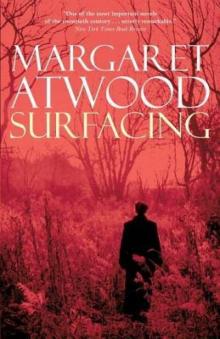 Surfacing
Surfacing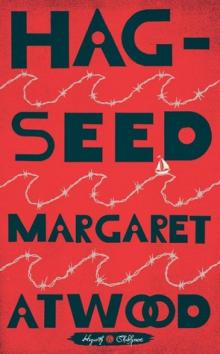 Hag-Seed
Hag-Seed Oryx and Crake
Oryx and Crake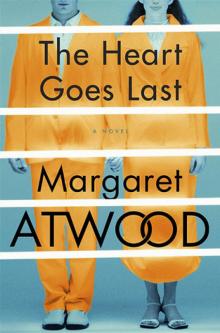 The Heart Goes Last
The Heart Goes Last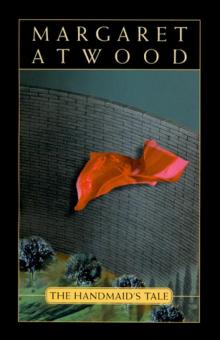 The Handmaid's Tale
The Handmaid's Tale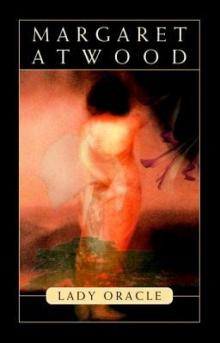 Lady Oracle
Lady Oracle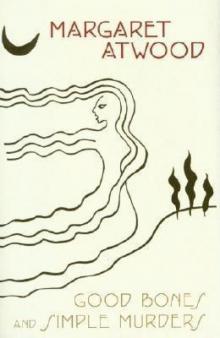 Good Bones and Simple Murders
Good Bones and Simple Murders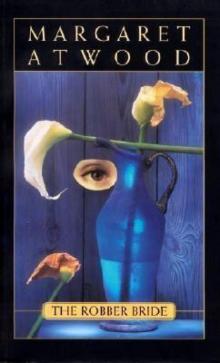 The Robber Bride
The Robber Bride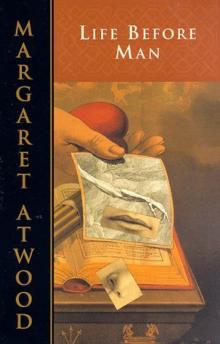 Life Before Man
Life Before Man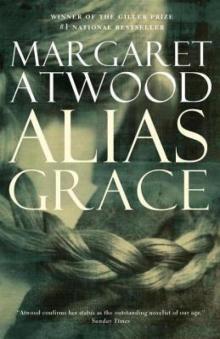 Alias Grace
Alias Grace The Blind Assassin
The Blind Assassin Cat's Eye
Cat's Eye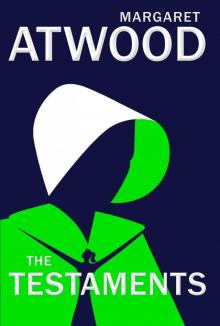 The Testaments
The Testaments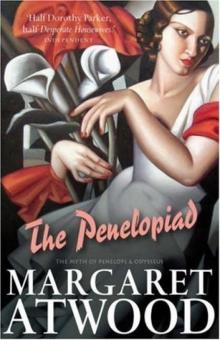 The Penelopiad
The Penelopiad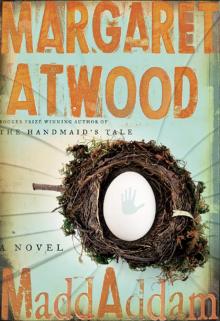 MaddAddam
MaddAddam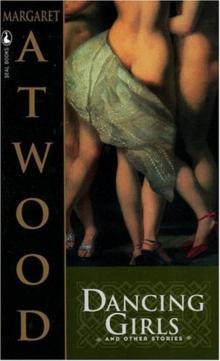 Dancing Girls & Other Stories
Dancing Girls & Other Stories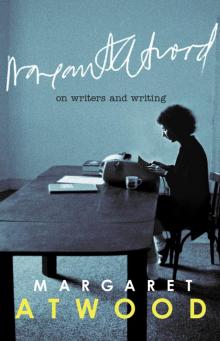 On Writers and Writing
On Writers and Writing Selected Poems II (1976-1986)
Selected Poems II (1976-1986)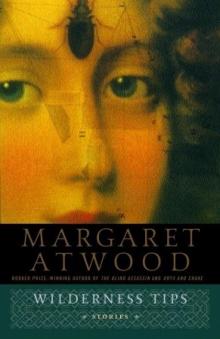 Wilderness Tips
Wilderness Tips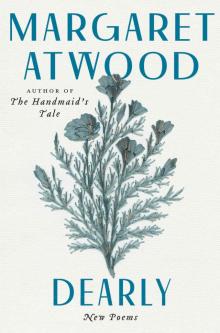 Dearly
Dearly The Tent
The Tent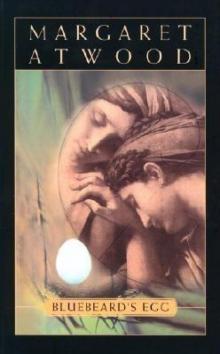 Bluebeard's Egg
Bluebeard's Egg The Edible Woman
The Edible Woman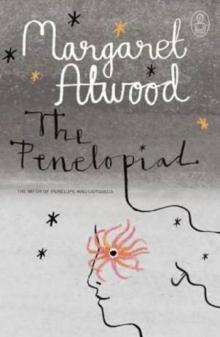 The Penelopiad: The Myth of Penelope and Odysseus
The Penelopiad: The Myth of Penelope and Odysseus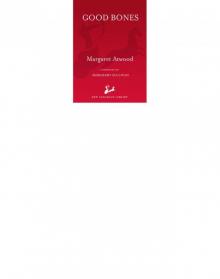 Good Bones
Good Bones I Dream of Zenia with the Bright Red Teeth
I Dream of Zenia with the Bright Red Teeth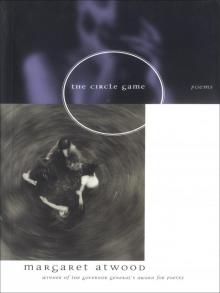 Circle Game
Circle Game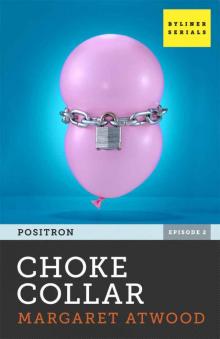 Choke Collar: Positron, Episode Two
Choke Collar: Positron, Episode Two Stone Mattress: Nine Tales
Stone Mattress: Nine Tales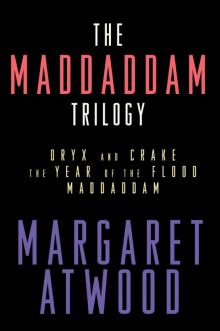 The MaddAddam Trilogy
The MaddAddam Trilogy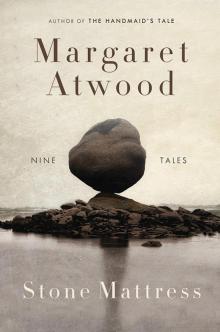 Stone Mattress
Stone Mattress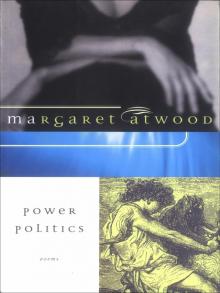 Power Politics
Power Politics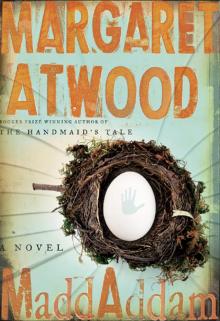 MaddAddam 03 - MaddAddam
MaddAddam 03 - MaddAddam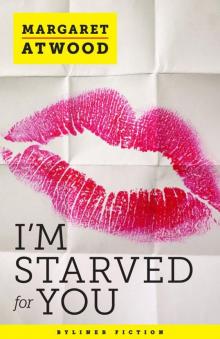 I’m Starved for You (Kindle Single)
I’m Starved for You (Kindle Single)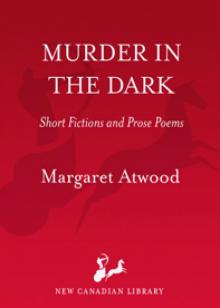 Murder in the Dark
Murder in the Dark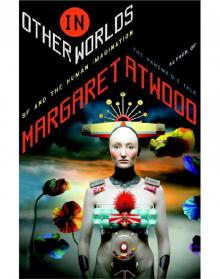 In Other Worlds
In Other Worlds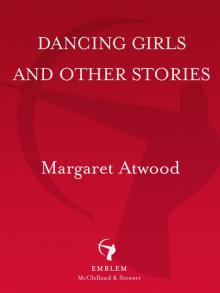 Dancing Girls
Dancing Girls Moral Disorder
Moral Disorder